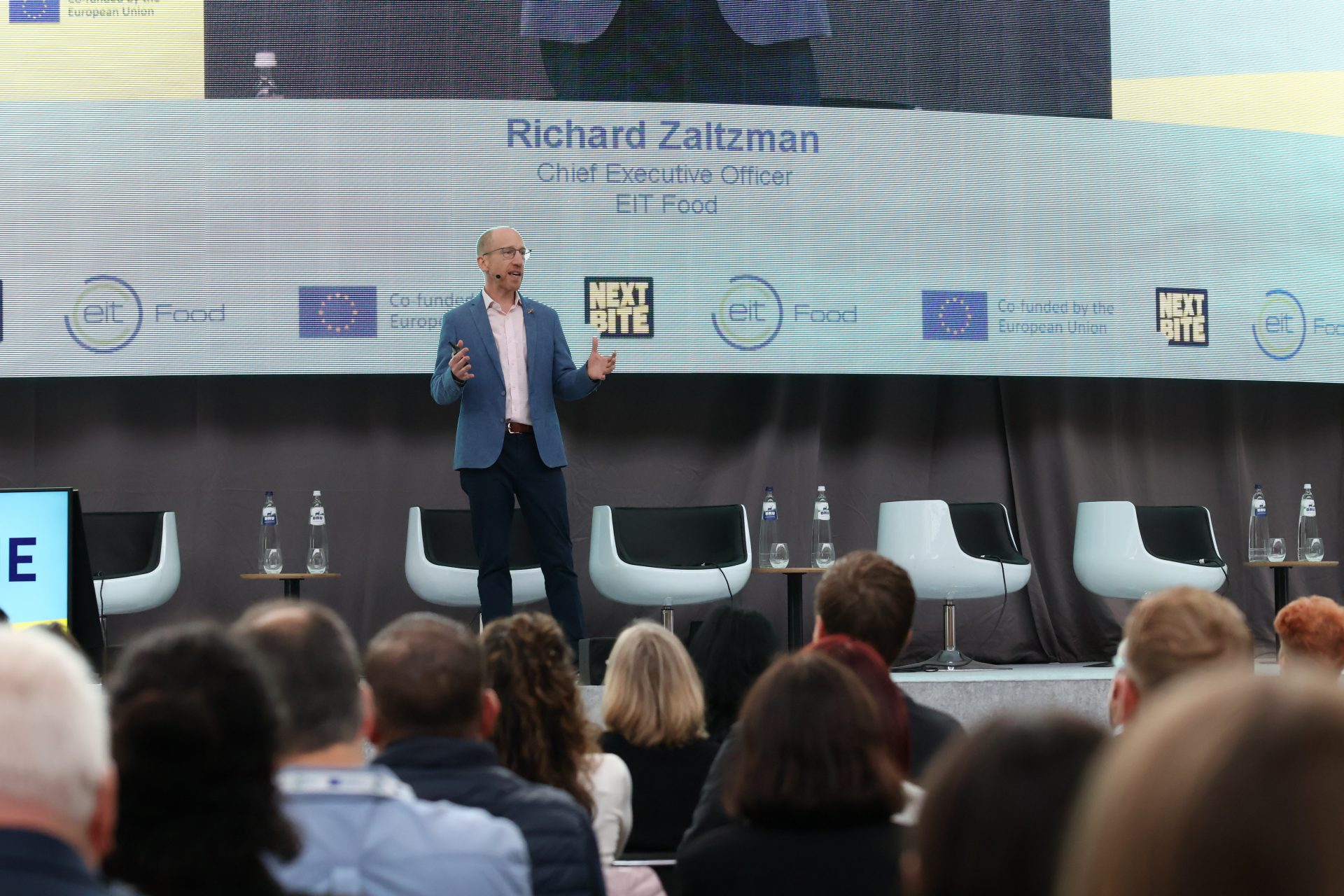CEO of food innovation community warns firms could exit EU over tough regulations

enr (Brussels) – The head of the world’s largest food innovation community, co-funded by the EU, has warned that the European Union risks losing start-ups in the sector which could exit the EU in the face of strict regulatory requirements.
“Anyone who’s working on gene editing, they can only get so far within the current European system without going through a lengthy process of applying for EFSA [European Food Safety Authority] certification, and that can be very expensive and time consuming for small companies”, EIT Food CEO Richard Zaltzman told the European Newsroom (enr) in an interview on Wednesday on the sidelines of the Next Bite 2025 event in Brussels.
“When you look at the evidence, some European start-ups are going abroad once they get to a certain stage because they can’t get to market in Europe either at all, in the case of gene-edited technologies, or they struggle to get to market in a timely manner if they need EFSA approval, compared to how they could do that in a regulatory environment like Singapore or the US,” Zaltzman said.
The chief of the Belgium-based organisation however said he expects the current European Commission to provide more favourable conditions for food innovation start-ups, for example with the upcoming Biotech act. “I’m optimistic that the environment will support European startups to realise their potential here in Europe, whilst also keeping a very strong focus on food safety and the health of European citizens. So it seems that the wind it’s going in the right direction for sure.”
EIT Food is one of the Knowledge and Innovation Communities (KICs) established by the European Institute of Innovation and Technology (EIT), which is an EU body and part of the Horizon Europe programme for research and innovation.
The European Food Safety Authority (EFSA) provides independent scientific advice on food-related risks.
The Commission led by President Ursula von der Leyen has vowed to boost European competitiveness through its “Competitiveness Compass” – in the case of start-ups by creating a friendly environment for young companies to start and expand.
“There are definitely doors opening for sure,” Zaltzman said. “Whether that’s going to be in regulatory sandbox environments where there’s testbeds for this to happen in specific countries or regions, even, there’s clearly a desire to capture the growth opportunity. So when we look at instruments such as the Competitiveness Compass and the European Competitiveness Fund, it almost certainly will address some of these areas,” he added.
To be a burger or not be a burger?
Zaltzman also told the enr that he is “disappointed in the European stance on nomenclature,” referring to discussions on meat-related labels like “burger” and “sausage”.
The European Parliament voted last week to ban the terms for plant-based products, prompting backlash from consumer and environmental groups. It said that names such as steak, escalope, sausage or burger must be reserved exclusively for products containing meat and must exclude cell-cultured products.
Zaltzman called the decision “an unnecessary inhibition for companies working in this space” and “an unnecessary closing of a door to allow companies to put their products on the shelf alongside a comparative product”.
He explained that “any sausage you buy is not a pure pork product. It’s only about 60 percent meat. The rest is grains and wheat and other additives. Neither are most burgers that you buy. So this idea that you’re protecting a pure product is actually a fallacy to start with”.
The EIT Food CEO however clarified his statement represented a personal view and does not reflect EIT Food’s official position.
Talks with EU member states and the Parliament are underway to define the final shape of the law before it can take effect.
This article is an ENR Key Story. The content is based on information published by ENR participating agencies.














































